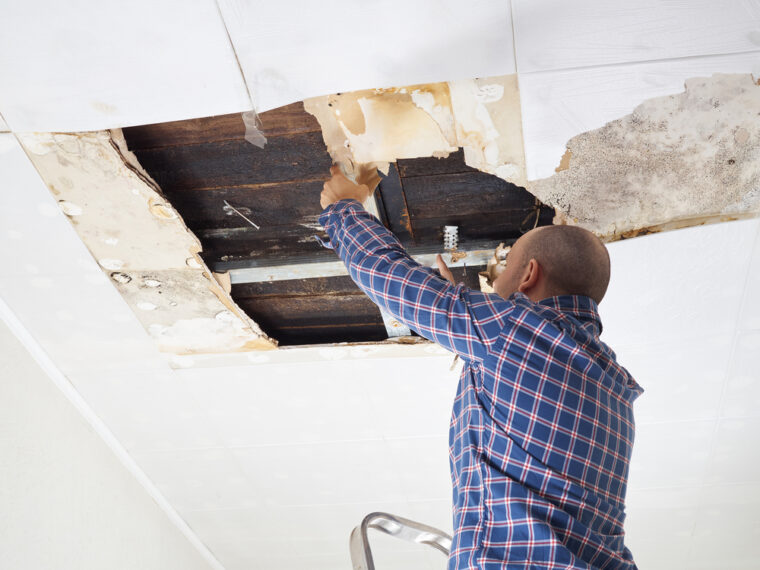Ways to Mitigate Water Damage in Your Home

Your Denver home is a haven where you should feel safe and comfortable. You do everything you can to make sure your home fits these ideals. Unfortunately, accidents, mishaps, and even catastrophic disasters can occur, causing damage to your Denver home. The most severe incidents can make your home unlivable or even destroy it. Water damage is one of the most common and destructive problems that homeowners face.
Water damage, typically because of flooding, can vary in scope and consequences. Some flooding and other water issues might be easy to clean up and cause only minor damage. However, other water damage can be extremely costly and dangerous. Fortunately, there are ways you can respond to flooding in your home. With the right water mitigation in Denver, you can salvage your home.
How Flooding Can Occur
In Denver, homeowners who contend with water damage might discover any number of culprits. One cause could be plumbing problems such as leaky pipes. This could result from poor maintenance, defective equipment, or simply because the pipes are old and need to be replaced. Leaky pipes can lead to bursting pipes, which can expel more water and cause flooding issues. Bursting pipes can also be the result of freezing temperatures.
Structural problems such as a damaged roof can lead to water damage. If your roof needs repairs or replacement, leaks are possible. These could go undetected for months or even years. Flooding can also come from stormwater runoff, torrential rainfall, or heavy snowmelt. Homes near waterways can be at risk for flooding when water levels rise.
House fires can also lead to water damage. To douse the flames, firefighters will use a significant amount of water. This can effectively control the fire but leave water throughout the home.
Get to Safety and Shut off the Power
Your first step in the event of flooding is to get young children and pets out of the house and away from danger. If there is a lot of water and extensive damage, everyone should evacuate the home immediately. If you can gather valuable, easy-to-grab items, you should do so, but only if your safety and well-being are not in jeopardy by doing so. If you can contain or stop the source of the flood, do so.
Importantly, you should shut off the power in your home when there is water damage. Locate the breaker box and turn off the power. On the other hand, if there is water on or near the breaker box, do not attempt to shut it off. A representative from your local utility company can do this from their location.
Call Your Insurance Company and Water Damage Professionals
You should leave much of the water mitigation in Denver to professionals who have the right knowledge, training, and tools to clean and restore your home. One way to tell whether you can handle the cleanup efforts yourself or should call a pro is by how much water is in your home. For minor damage, you can mitigate much of the damage. However, professional mitigation and Cleveland, OH, flood damage services should get involved if there are more than a few inches of water in your home. You should not delay in contacting technicians following a flood.
You will also need to make your insurance company aware of what has happened. Your policy will likely not cover flooding from natural events. However, a homeowner’s policy should protect you against water damage from plumbing issues or sewer backups. Call your agent as soon as you can. Provide details about how the flood started, where it started, what areas of your home have been affected, what was damaged, and how severe the damage was. It can help to provide pictures if it’s safe to take them.
Look for Mold
Perhaps the most common effect of flooding or other water problems is mold. Mold growth can occur over long periods before you discover it. When conditions are right, mold can start to appear in as few as 24 hours. Mold typically appears in homes on the walls, floors, and ceiling. It can also appear underneath or inside these areas, making it difficult to spot. Mold not only damages anything it touches, but it can cause health issues for you, your family members, and your pets. The most damaging mold, black mold, can be severely toxic.
If your home has been flooded, you should inspect the affected areas and damaged items as soon as possible. Look for any signs of mold. It will appear as black stains or specks of various colors, such as white, black, green, orange, or brown. It may also have a furry-like appearance. You may even be able to spot mold by smelling it, as it gives off an earthy odor, such as rotting wood or wet socks. If you find mold, you’ll want to contact a specialist to remove it right away.
Remove Wet Materials and Start to Dry Out Your Home
If it’s safe to do so, you should begin getting wet items out of the water and to a safe, dry place. These items include furniture, clothing, keepsakes, books, or toys. In a flood, the carpet in your home likely will have gotten wet if not completely submerged in water. You will want to tear out the carpet and dispose of it. Next, use industrial-strength fans to start drying out the wet and damp areas of your home. This will help to prevent mold growth. Be cautious about plugging in fans, however, if there is any water near electrical outlets.
Water damage in the home can be a disastrous event. You will feel a lot of stress and may even feel helpless. Still, you need to take some important steps to help mitigate the damage and prevent further issues. Following these guidelines can help you spare your home from worse consequences and restore it to its pre-flooding state.
